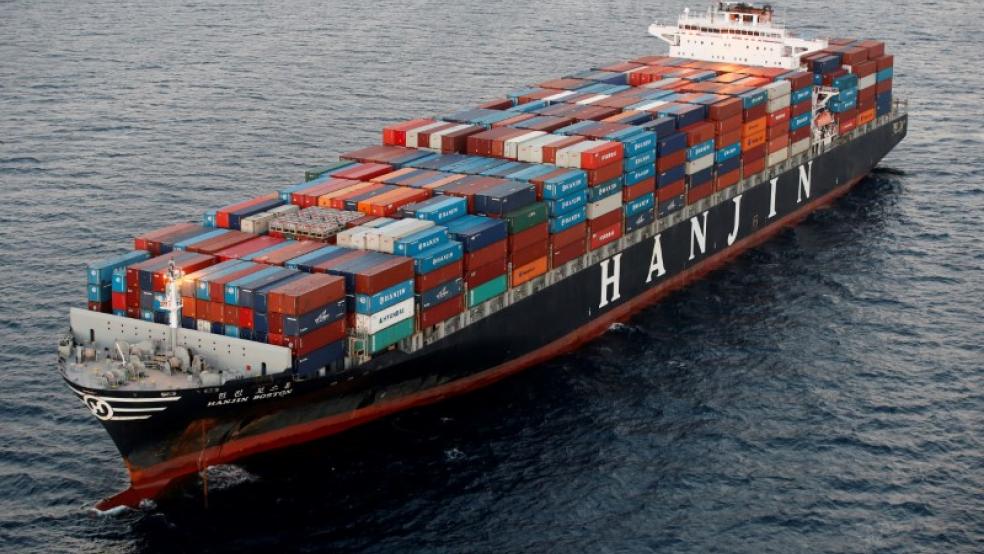After nearly two years of publicly complaining about China and other major U.S. trading partners getting the better of the deal when goods cross international borders, President Trump appears to be examining ways to strike back against what he calls unfair trade practices. Ironically, the route he is exploring appears to bypass a major international trade agreement designed to give governments a forum in which trade-related grievances can be adjudicated in a binding manner.
According to The Financial Times and Business Insider, the administration is asking the Office of the U.S. Trade Representative to draft a set of options for imposing economic penalties on China and other U.S. trading partners outside the formal channels created within the structure of the World Trade Organization.
Related: Steve Bannon Makes His Case for Economic Nationalism
The WTO, which formed in 1995 out of the post-World War II General Agreement on Tariffs and Trade, defined a set of binding requirements on member countries that was meant to establish a framework for trade negotiations as well as a method for resolving potential disputes.
The U.S. was one of the key players in the development of the WTO and is a signatory to all of its relevant agreements, including the Dispute Settlement Understanding (DSU).
According to the WTO itself, the obligations of member countries are clear: “The dispute settlement system is compulsory. All WTO Members are subject to it, as they have all signed and ratified the WTO Agreement as a single undertaking, of which the DSU is a part ... This consent to accept the jurisdiction of the WTO dispute settlement system is already contained in a Member’s accession to the WTO. As a result, every Member enjoys assured access to the dispute settlement system and no responding Member may escape that jurisdiction.”
The reason for the DSU’s existence, according to the WTO, is practically self-evident. “If Members were to act unilaterally, this would have obvious disadvantages that are well known from the history of the multilateral trading system … Things may spiral out of control and, unless one of the parties backs down, there is a risk of escalation of mutual trade restrictions, which may result in a ‘trade war.’”
Related: What a Trade War With China Could Do to the Economy
A move to impose unilateral sanctions or tariffs on countries like China as a response to what the president views as anti-competitive behavior would be yet another signal of the Trump administration’s disdain for the international order and the institutions that keep it functioning.
The administration has already demonstrated its contempt for broad international trade agreements by withdrawing from the Trans-Pacific Partnership negotiations just hours after President Trump was sworn in.
In an appearance outside Washington last week, White House Chief Strategist Steve Bannon called withdrawing from TPP “one of the most pivotal moments in modern American history.” The administration is now, he said, starting to think through a whole round of “amazing and innovative” bilateral trade relationships.
And with regard to China in particular, Trump has surrounded himself with advisers advocating a very aggressive approach in which a trade war might be more of a feature than a bug.
University of California-Irvine economist Peter Navarro has joined the administration to lead the newly-formed National Trade Council within the White House. Navarro, an economist with strong academic credentials but views that are well outside the mainstream of thought on trade policy, is the author of the book Death by China, which describes what Navarro sees as a slow strangulation of the U.S. economy by Chinese trade policy.
Related: Trump Has No South China Sea Strategy — and Needs One Fast
Like some other trade hawks, Navarro has been among the critics of the WTO who see the dispute resolution system as sclerotic and biased toward Chinese interests.
Last year Navarro and incoming Commerce Secretary Wilbur Ross co-wrote a white paper that touched on the way U.S. goods are taxed by other countries and seemed to suggest that the U.S. ought to threaten to leave the WTO entirely.
“Donald Trump understands that the only way to correct this unfair tax treatment is for the US to use its status as the world’s largest economy, the world’s largest consumer, and the world’s largest importer to put pressure on the WTO to change this unequal treatment,” Navarro and Ross write. “Without the US as a member, there would not be much purpose to the WTO, but prior occupants in the White House have been unwilling to lead on this issue despite its significant negative impacts.”





